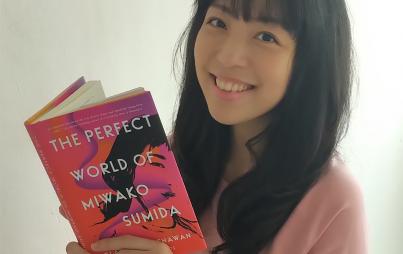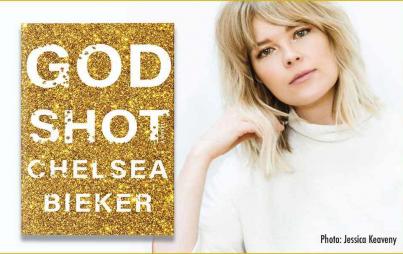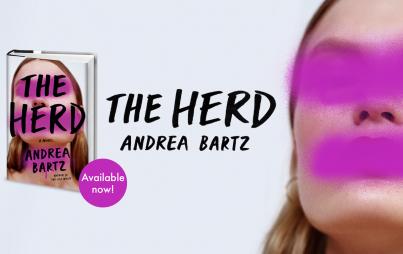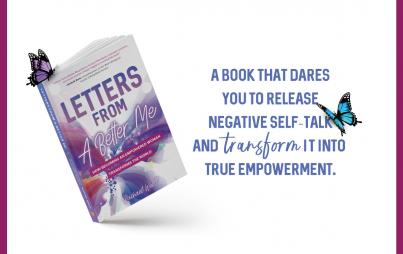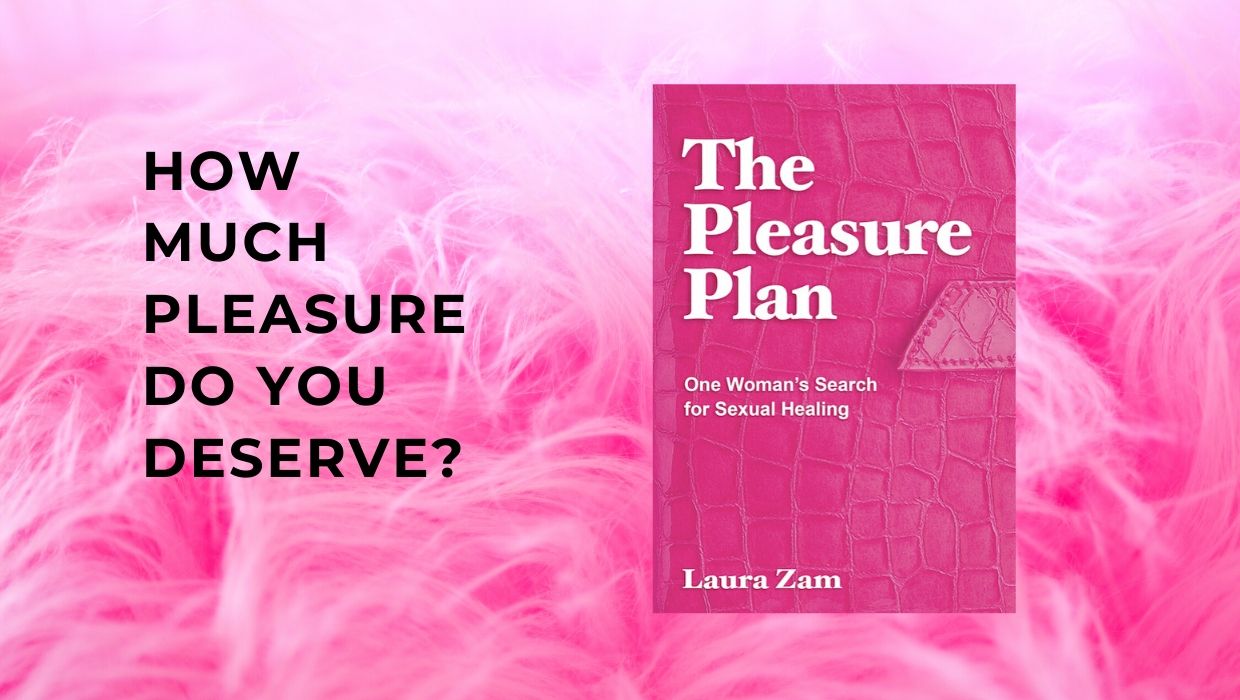
Laura Zam's The Pleasure Plan
I recently had the pleasure of chatting with Laura Zam about her memoir THE PLEASURE PLAN: ONE WOMAN'S SEARCH FOR SEXUAL HEALING (HCI Books, Sold by Simon & Schuster, May 5, 2020), which explores Zam's journey overcoming sexual dysfunction and trauma—by trying 30 pleasure-enhancing methods.
About The Book
Based on Laura Zam’s essays in The New York Times’ Modern Love column and Salon, THE PLEASURE PLAN is a memoir, a sexual healing guide, and a love story. In her forties, Laura met and married the man of her dreams⎯after a life-long search. Everything was picture-perfect, except for one big thing. Laura’s “hooha hangups” included low libido, orgasm challenges, and pelvic pain. She suffered silently, ashamed of feeling “bedroom broken.” But after a chance encounter, Zam embarked on what she dubbed “The Pleasure Plan,’ a way to save her marriage and reclaim her body. Laura's wild ride encompasses 15 healers and 30 pleasure-enhancing methods, including hypnosis with a bawdy therapist; Tantra with a geriatric mistress; and cutting-edge workshops in desire, arousal, and climax. Amidst these adventures, the author seamlessly interweaves her recovery from childhood sexual abuse; tales of her Holocaust-surviving mother; and a clear-eyed view of how the medical and psychological establishments might better serve women dealing with sex challenges. Packed with humor, heart, and a healthy dose of prescriptive advice, THE PLEASURE PLAN is a roadmap for sexual healing that empowers women to speak up, seek help, and take charge of their own erotic potential.
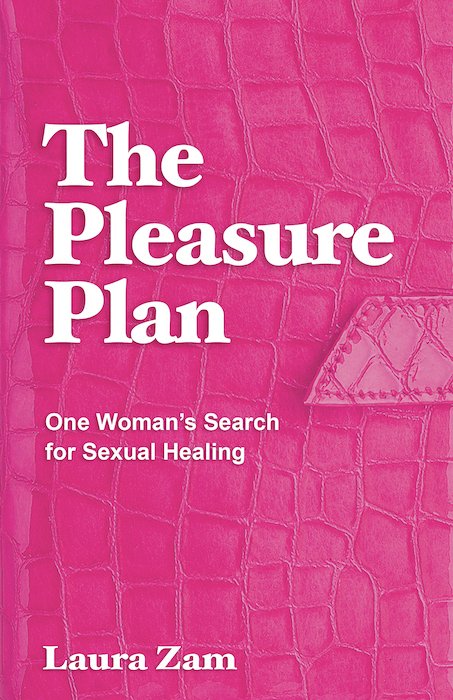
In The Pleasure Plan, you go on an extensive (and outrageous) journey to heal from six sexual dysfunctions as well as trauma, what you refer to as “every hooha hangup in the DSM.” You tried 30 different sexual healing methods. What worked and what didn’t?
What worked, foremost, was getting solid medical information and intervention. As one example, for thirty years, I had undiagnosed vaginismus. I thought I was broken, but then I found out: I just had a muscle spasm. Once I understood what specifically was wrong, I could mend myself. I also attribute my healing to amazing women who’ve made it their life’s work to pass on great sex ed. There are many in my book, like the tantrika I see for private sessions, and Emily Nagoski, who wrote a crucial book about female sexual response called Come as You Are. I also worked with sexologist Betty Dodson, who, at 91, is still doing incredible female-pleasure weekends that were recently featured on Netflix (The Goop Lab).
What didn’t work was having a therapist tell me very early on that I wasn’t a “sexual person.” Therefore, I should just lie there and accept painful pounding so my husband wouldn’t leave me. This advice sounds awful coming from a shrink, but it’s precisely what women have been told for millennia. I think sacrificing our wellbeing for male pleasure is very ingrained. Luckily, that’s changing!
Why do you think women have a hard time recognizing, addressing, and talking about their sexual issues?
It starts with lousy sex ed. In grade school health classes, teachers typically don’t even mention the clitoris—our main sex organ. Or they talk about it in an incomplete way, leaving out the internal clitoris, which is central to arousal. It wasn’t until I went on my healing odyssey, pushing 50, that I got a complete picture of how I worked. I’m not alone. Too many women don’t know about their own bodies.
On top of that (pun intended), male pleasure is seen as paramount, like what that therapist from my book was trying to drill into my head: “Just have sex.” I think women don’t talk about our issues because we don’t know specifically what’s wrong, so we blame ourselves. I’m hoping my book helps women get clarity, and that it empowers them to seek out their own delight.
What’s the worst piece of writing advice you’ve received? What’s the best?
The worst piece of writing advice was from one of my writing teachers in graduate school (an MFA program). At the time, I was still primarily writing plays. He said: "Your scenes are either too long or too short." His advice was that I keep practicing, but he also emphasized, strongly, that I was inexperienced and didn't know how to write a play. He wrecked my confidence for years.
The best advice was from my teacher and mentor Susan Shapiro, who swears by a kind of formula for getting a memoir published: write a strong personal essay; place it somewhere prominent; use that placement to get an agent and publisher. After working for years in the theater without a clear vision for advancement, I fell in love with Sue's formula (and Sue herself). Right after meeting her in 2013, I began work on an essay that I hoped to publish in Modern Love (NY Times). I worked for months on that piece (with Sue) and then submitted it. They accepted it! I used this placement to help me get an agent and publisher. I just followed the formula; it was amazing. Sue details her method in a book called The Byline Bible, which I highly recommend.
What are you reading now?
I had to pause reading during launch, with a million things going on. But I just read three books in quick succession that I feel are still with me. Also, each of them is helping me live through this pandemic: a gorgeous memoir about healing through nature called One Hundred Daffodils by Rebecca Winn; a delicious historical novel set in 18th century Italy, about a woman escaping imprisonment (a Jewish ghetto) called Beyond the Ghetto Gates, by Michelle Cameron; and a wonderful self-help book, Letters From a Better Me by Rachael Wolff, that helps women transform themselves and the world. Right after my launch, I'm going to dive into Three Hours in Paris by Cara Black, which is a thriller set in Paris in 1940. Its heroine is an American spy who's been given a mission to assassinate Hitler. What fun, right? I’m also looking forward to reading a lovely linked essay collection called A Fish Growing Lungs, by Alysia Li Ying Sawchyn.
What are you most looking forward to when we are done with social-distancing?
I'm really looking forward to sitting in cafes. There are about 15 incredible cafes near my house in DC. In my pre-pandemic life, I would go to a different one every day, at two pm. I'd write there all afternoon. It helped break up my day with fresh inspiration and a variety of caffeine—also,a bit of chocolate. Till then, I’m going to replicate as best as I can. Now, at two, I sit in a new spot in my apartment, and there is a lot more chocolate. Pleasure during the pandemic requires a touch of excess.
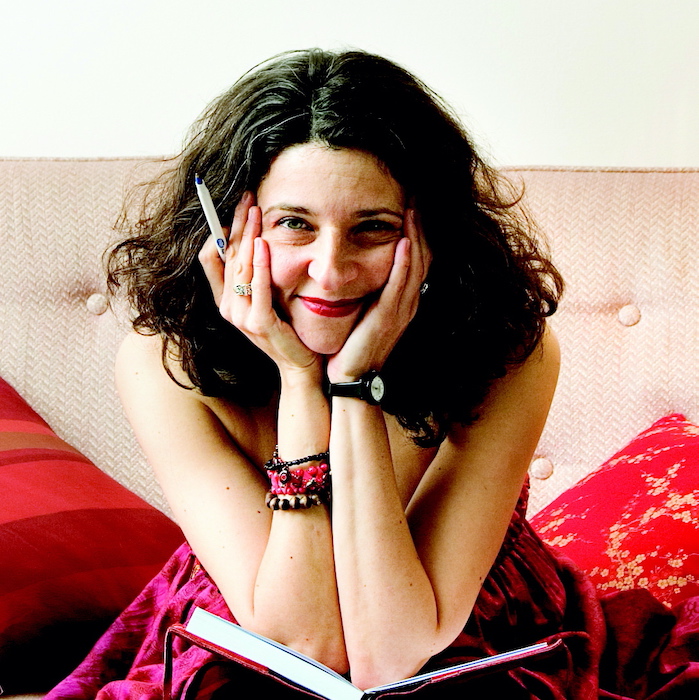
About the Author
Laura Zam is an author/speaker, Sexuality Educator, Certified Trauma Professional, and women’s health advocate. Her writing appears in the New York Times, Salon, HuffPost, and other publications. In 2013, Laura’s one-person comedy about healing in the aftermath of childhood sexual abuse was presented Off-Broadway. Her work has been covered by NPR, The Washington Post, ABC-TV, and many other outlets. She's taught at Brown University, UC Berkeley, and many other colleges. These days, Laura offers talks, workshops and coaching related to sexual healing and female pleasure. Visit her at LauraZam.com. You can also find her on Facebook, Twitter, Instagram, and LinkedIn.




